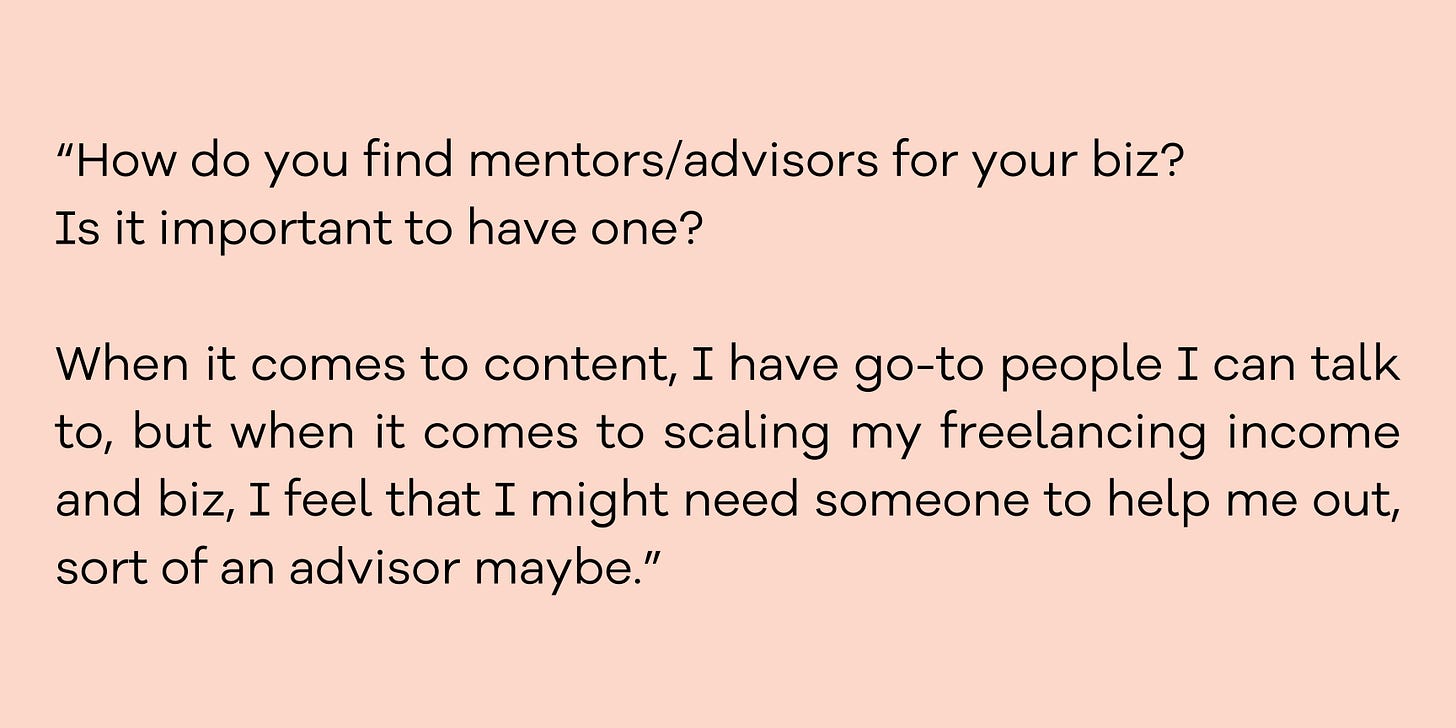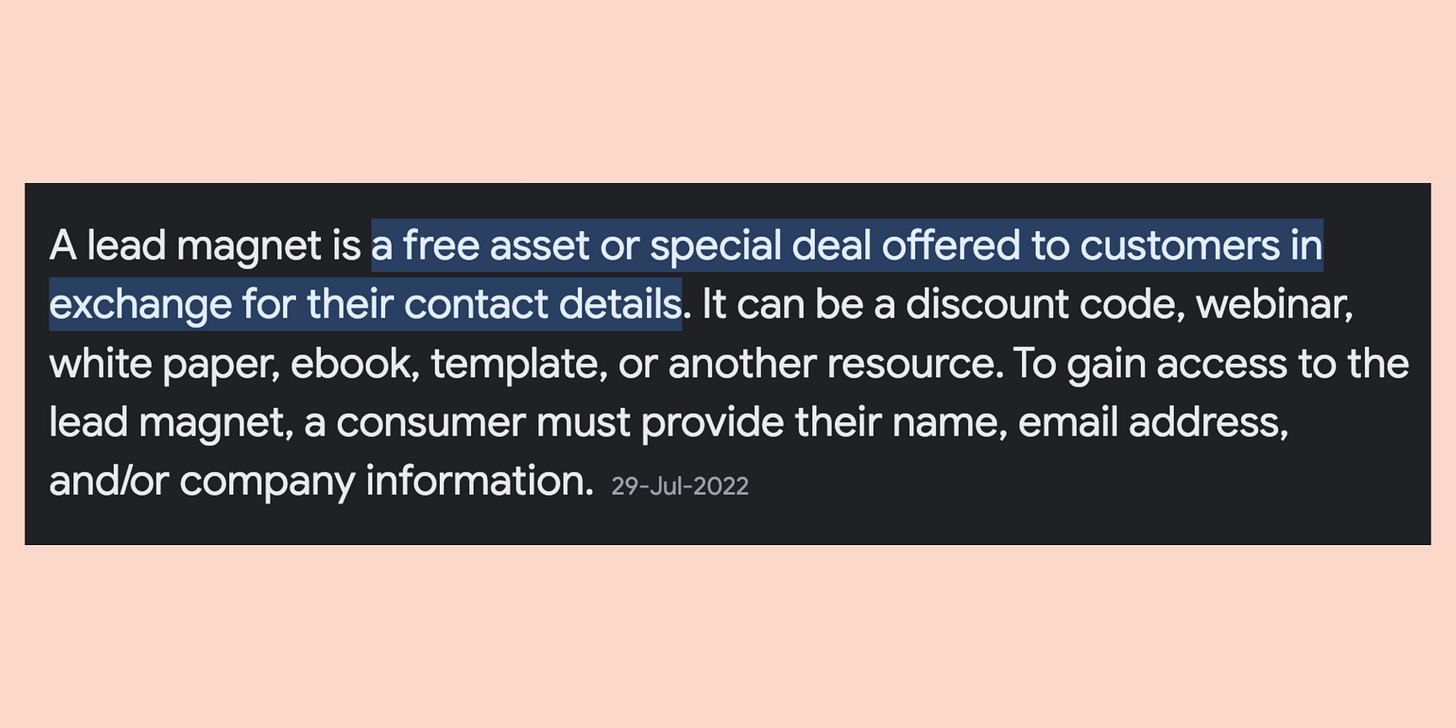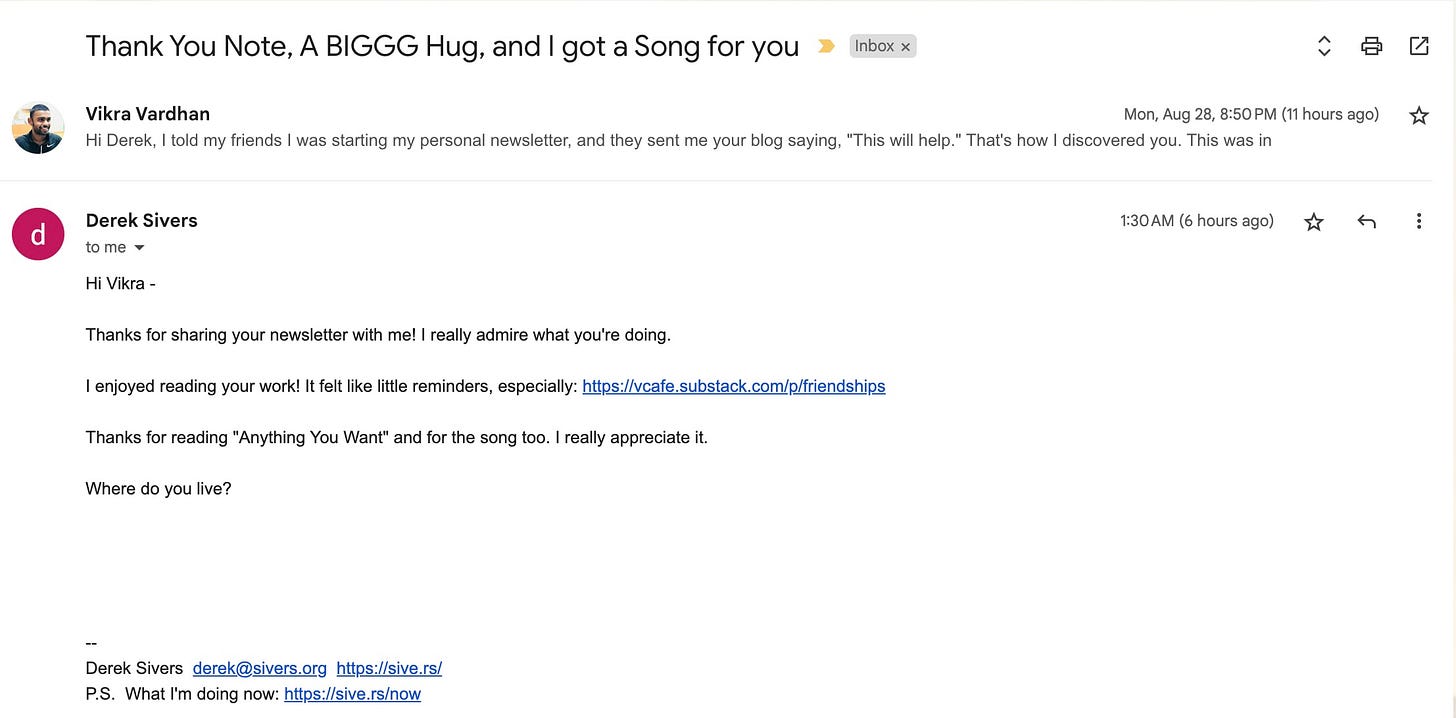Chelsi asked an interesting question in The Cognition Insiders:
Before I share my views, I want to tell a story.
There is a Telugu film, Khaleja, released in 2010. Today it is a cult film. Everyone always keep rewatching the film; people are glued to the screens when it plays on TV, and dialogues became part of everyday conversations.
But it was not the case in 2010. It was a flop in theatres.
The protagonist is considered a God by one specific village.
The villagers are dying due to some kind of contamination, and they believed this God would save them from all their misery.
So the story happens.
The protagonist comes and saves the village.
All good.
The concept of God was initially a little tough to comprehend for the audience, and it took some time to accept and enjoy the film.
Years after the film’s release, a journalist asked the director:
“What is this concept of a man (in the movie, a taxi driver) being considered a God by a village of 534 residents?”
His reply was beautiful. I translate it to my understanding:
Imagine a guy, say John, met with an accident in a new city. No one to call to, not even in a position to get up.
An auto driver sees John, offers him help, carries him on his shoulder, and then drives him to the hospital.
He is only an auto driver. But from the moment he started helping John to the time he admitted him in the hospital, he was God to John: Someone who came to rescue him.
Auto Driver was still a driver before and after the incident—to the entire world and to John, but in that particular chapter, he became a God.
Similarly, the protagonist was a taxi driver before and after the village incident. But during the time he was saving the village, he was God to the villagers.
I believe the same applies to Mentorship.
Instead of having one mentor, I go to the person who could offer me the best help at that point in time.
For Example:
Last week, I closed a client for technical writing.
Apart from the things I already know, I want to know insights that make my job easier and more efficient.
So I asked Abhilash for a call, who understands technical writing and has good knowledge of the domain.
Abhilash was my friend before the call and is my friend after the call. But during our 30-minute call, he was my mentor.
My point is:
You don't need one mentor for everything.
You can find different mentors for different situations/projects.
Similarly,
If I have a problem with community management, I DM Riten.
If I want to consume good content, I ask Mitesh.
If I want to start podcasting, I’ll call Tushar.
If I need to understand websites or development, I’ll go meet Aravind.
…so on.
Different Mentors for Different Situations.
1-2-3 Copywriting Newsletter by Kushagra Oberoi is the only & most detailed newsletter on copywriting tips that you'll ever read.
Every Sunday you get:
1 Copywriting Tip
2 Examples
3 Tactics for You
All in less than 5 mins.
Not only do you become a smarter copywriter & marketer but you also learn how to apply what you learned in the real world.
Click below to subscribe now and if you're not sure, you can read as many previous editions as you want for free.
Lead Magnets on social media are losing their credibility
Look at Twitter and Linkedin. Everyone has got a lead magnet. Everyone is asking to retweet and comment.
The audience today are smart. They understand lead magnets are just to:
Increase impressions or profile views
Gain followers
Collect emails
It’s an effective strategy, no doubt. You’ll definitely get engagement, profile views, emails, all the things you aspire for with minimum effort and automation.
But…
I am upset with the quality of lead magnets.
Copy-pasted AI content or content that’s only worth a social media post is being given away as a lead magnet.
I see no effort put into creating it. There is no premium sneak peek offered.
If I have to offer you a lead magnet, I’ll make sure it’s different from what you see in Cognition, and it’s much premium than what you find on my socials.
Why?
As a consumer, I have downloaded many lead magnets from big creators and was disappointed because it’s not even the 10% value they usually offer. I felt disrespected as a consumer because it makes me feel like all you care about is a follow, comment, and my email.
Again, a good strategy that works + How one builds their brand is up to them. But I’m not a big fan of treating your audience as just some numbers on social media or an email list.
If you’re taking their email, give something valuable in return.
Cognition in the coming weeks:
I am developing four ideas:
30-day time tracking
Subject line analysis
How can you support your creator friend?
Cognition’s 0-500 Report
I’m excited about how these issues turn out, and I can’t resist giving some teasers:
I have tracked my time for 30 days. I will share my reasons, the tools used, what I will do with the data, and my optimization plans. See the outline here.
I am subscribed to 28 newsletters. I will observe, analyze and present my views on drafting effective subject lines.
I closed a new client and am unsure how the workload will be. If it goes as I predict it to, I might publish the third topic soon. This is personal + it will connect with many creators out there.
For the last topic, Cognition needs to reach 500 subs. We are at 457 at the time I write this issue, and we remove inactive emails on the 15th of every month. But this is one topic I’ve been looking forward to for a looooooong time.
Moments from The Cognition Insiders
Rajita, Chelsi, and Aditi taught me how the emojis work 🌚
Before we move to the non-technical segment, here are some previous issues you might love:
Non-Technical aka Fun Segment
Movies/Shows I watched recently
Vanshita asked me about my favourite crime documentaries. The question made me realize I didn’t watch many despite my interest in the genre.
So I spent last week watching a few of them.
Veerappan
I’d highly recommend it if you want to know the A-Z story of Veerappan. It’s a four-episode series, one hour each. The structure is good, the storytelling brilliant, and BGM amplified the effect.Scam 2003: The Telgi Story
I tried my best not to compare it with Scam 1992, but the only turn-off was the story presentation. In 1992, you can clearly understand the character motivations and multiple POVs. It was missing in 2003. Everything was told from Telgi’s POV (which is a form of storytelling, of course), but maybe I expected more from the makers.
Nevertheless, it’s a good series. It’s fun, engaging, and well-explained. Did I enjoy watching it? Yes.Indian Predator: The Butcher of Delhi
A story not well told. I felt the incidents, killings, and drama were more powerful than how they were depicted in the series. But just to understand the facts and story, it’s a good watch.
YouTube video I loved recently
It’s nice how Vishal mentioned 9th September is his birthday, and I watched this video on the same day.
I love Vishal’s one-liners in Tanmay's reaction videos, and this is the first time I’m listening to his story. Worth the watch.
Peek into my Personal Life:
Vikra's Café feels like home to people who enjoy reading light and beautiful content. If you love reading personal stories, travel blogs, and some authentic heartwarming writeups, this is your place:
Subscribe or read the archives first here.
(Trust me when I say this is growing faster than Cognition)
Song I’m listening to on a loop
2:37-3:20 has my heart.
Can’t believe I wrote 35 issues. All I can say is thank you for sticking around and supporting Cognition.
Stay safe, take care, and find different mentors for different purposes. ✨
Love,
Vikra.











